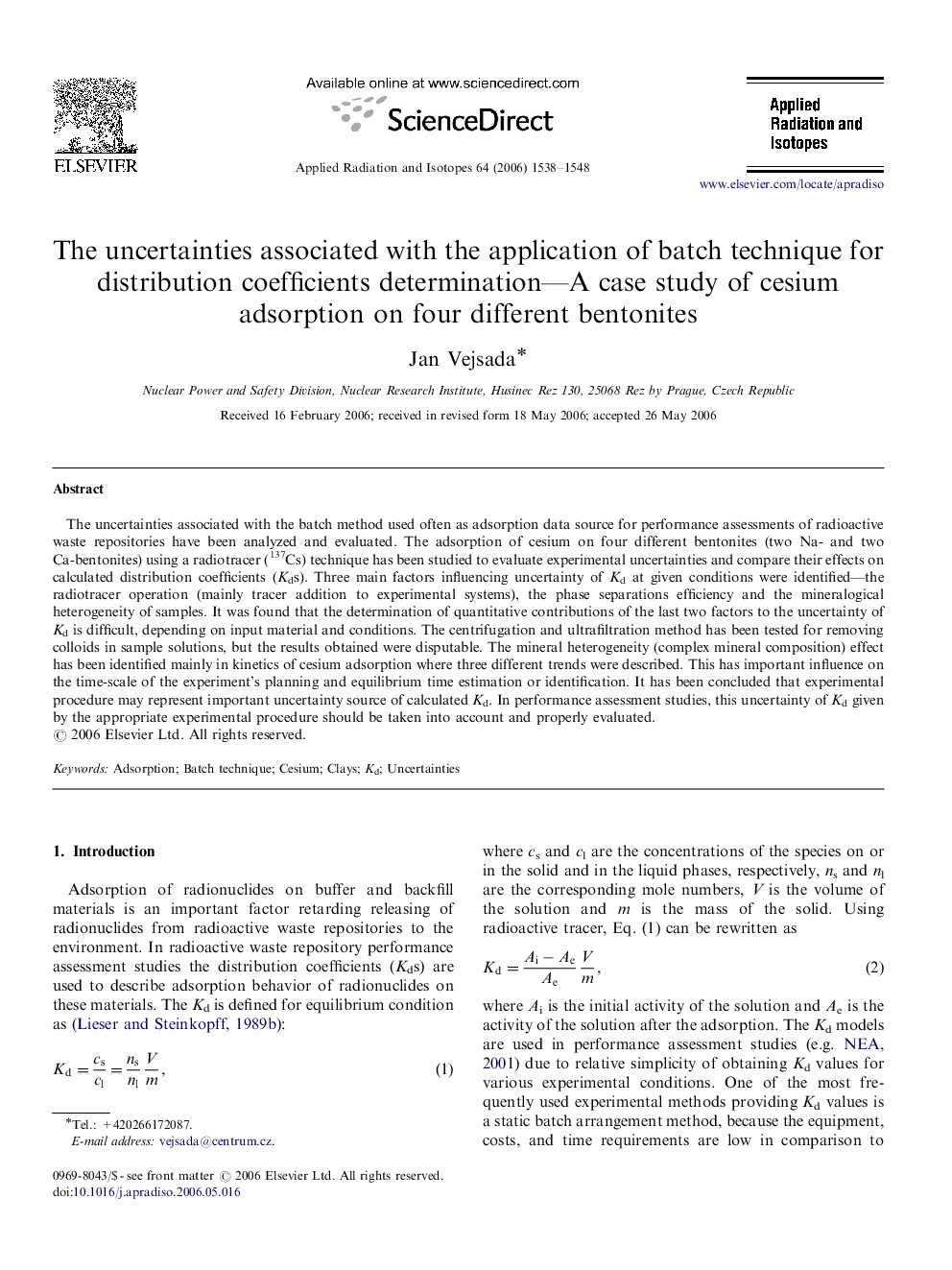| Article ID | Journal | Published Year | Pages | File Type |
|---|---|---|---|---|
| 1877409 | Applied Radiation and Isotopes | 2006 | 11 Pages |
The uncertainties associated with the batch method used often as adsorption data source for performance assessments of radioactive waste repositories have been analyzed and evaluated. The adsorption of cesium on four different bentonites (two Na- and two Ca-bentonites) using a radiotracer (137Cs) technique has been studied to evaluate experimental uncertainties and compare their effects on calculated distribution coefficients (Kds). Three main factors influencing uncertainty of Kd at given conditions were identified—the radiotracer operation (mainly tracer addition to experimental systems), the phase separations efficiency and the mineralogical heterogeneity of samples. It was found that the determination of quantitative contributions of the last two factors to the uncertainty of Kd is difficult, depending on input material and conditions. The centrifugation and ultrafiltration method has been tested for removing colloids in sample solutions, but the results obtained were disputable. The mineral heterogeneity (complex mineral composition) effect has been identified mainly in kinetics of cesium adsorption where three different trends were described. This has important influence on the time-scale of the experiment's planning and equilibrium time estimation or identification. It has been concluded that experimental procedure may represent important uncertainty source of calculated Kd. In performance assessment studies, this uncertainty of Kd given by the appropriate experimental procedure should be taken into account and properly evaluated.
